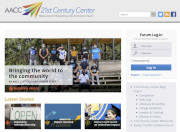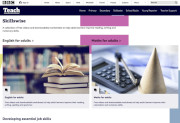
National Center for Autonomous Technologies (NCAT)
ncatech.org
This ATE National Center aims to serve the national need for developing and maintaining a skilled technical workforce in the field of autonomous technologies. Autonomous technologies have the potential to revolutionize the way people across the globe live, work, travel, and learn. They also have critical implications for the national economy, as well as national safety and security. The National Center for Autonomous Technologies will focus on three areas of autonomous technology: unmanned aircraft systems, connected automated vehicles, and unmanned underwater vehicles. Successful deployment of autonomous vehicles requires highly skilled, agile technicians who can support vehicle design, monitoring, control, use, and repair. The mission of the National Center for Autonomous Technologies will be to coordinate and lead efforts to educate the skilled technical workforce in autonomous technologies. The Center aims to achieve its mission through a concerted national effort that will develop and disseminate educational resources to meet current and future workforce demands and broadly engage stakeholders from industry, government, and related ATE projects and centers.
The Center aims to improve student learning and technician education by conducting research and analysis to design quality curricula and content that meets the evolving demands of autonomous technologies in unmanned aircraft systems, connected automated vehicles, and unmanned underwater vehicles. The Center also aims to support recruitment and success of rural and underrepresented students in careers related to autonomous technologies, while developing replicable models that increase access to these careers for all students.







